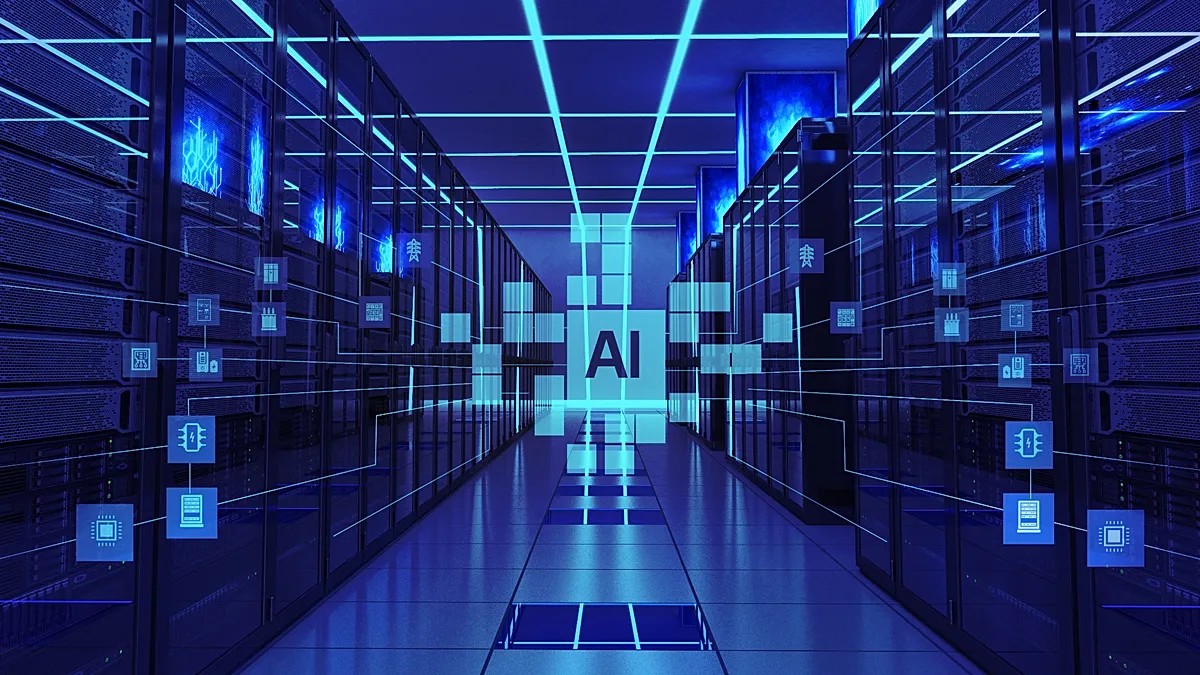While Nvidia recently became the world’s first company to reach a $5 trillion market capitalization, demonstrating its dominance in the rapidly expanding AI chip market, a new report reveals a troubling contrast: the company lags behind its peers in addressing the significant environmental impact of artificial intelligence. A study by Greenpeace titled “Supply Change: Tracking AI Giants’ Decarbonization Progress” paints a stark picture of the industry’s struggle to reconcile its explosive growth with sustainability goals.
The report scrutinizes the decarbonization efforts of the ten leading AI companies, encompassing both established tech giants like Amazon, Apple, Google, Microsoft, and Meta as well as semiconductor heavyweights like AMD, Broadcom, Intel, Nvidia, and Qualcomm. The findings highlight a widespread failure to tackle emissions across their complex global supply chains – responsible for over 80% of the total carbon footprint for companies like Nvidia, Qualcomm, and Broadcom, and as much as 98% for AMD by 2024.
Surprisingly, despite its groundbreaking achievements in AI processing, Nvidia ranks last among these giants when it comes to supply chain decarbonization. Greenpeace cites inadequate climate commitments, particularly concerning the supply chain, insufficient transparency regarding emissions sources, and a lack of concrete actions to reduce upstream manufacturing pollution as key factors contributing to this poor performance.
Broadcom closely follows Nvidia, while Apple emerges as a relative leader, achieving a B grade in the report’s supply chain decarbonization ranking. Microsoft and Google follow with C- and D grades respectively, demonstrating that even industry leaders have significant room for improvement. The remaining seven companies received failing (F) grades.
This pattern repeats in operational decarbonization, with five companies scoring an F grade. Again, Apple leads the pack with an A-, followed by Google (B) and Microsoft (C). While these rankings reveal varying degrees of commitment to environmental responsibility within the AI sector, a troubling trend persists: a lack of transparency regarding the true environmental cost of AI development.
Nine out of ten companies, including Nvidia, Microsoft, and Google, received the lowest F grade for supply chain transparency. This is primarily attributed to insufficient reporting on electricity consumption and renewable energy adoption across their vast supplier networks.
The report emphasizes the enormous energy demands inherent in manufacturing AI hardware. By 2030, global electricity usage from AI chip production could surge 170 times compared to 2023 levels, potentially exceeding Ireland’s entire 2023 consumption. This staggering growth underscores the urgency of addressing this hidden cost of AI advancement.
Furthermore, barring Apple, none of the other companies have committed to transitioning to 100% renewable energy across both operations and supply chains by 2030. The chip design sector falls furthest behind in adopting green practices: Nvidia has not set any renewable energy goals for its supply chain, while Qualcomm and Broadcom lack targets for their own operations or suppliers. Nvidia, Broadcom, and AMD have also failed to make promises regarding net-zero or carbon neutrality across any aspect of their businesses.
Greenpeace calls on AI giants to prioritize a 100% renewable energy transition across their supply chains by 2030 and increase transparency in their decarbonization efforts to prevent greenwashing. The United Nations Environment Programme (UNEP) echoes this call, urging governments to incorporate environmental considerations into national AI strategies, recognizing that the lack of such guardrails poses a significant risk alongside other potential AI-related hazards.
With AI poised to play an increasingly central role in our lives, it is imperative that its rapid growth doesn’t come at the expense of planetary health. The report serves as a crucial wake-up call for industry leaders and policymakers alike: sustainable AI development must be not just an aspiration but a fundamental requirement for responsible innovation.
